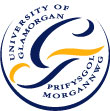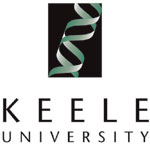|
UK Forensic Science DegreesThe aim of this page is to help anybody looking for information relating to UK forensic science programmes, forensic science schools or forensic science study options. Anglia Ruskin University
BSc (hons) Forensic Science:
The forensic science degrees emphasise the importance of analytical chemistry and DNA-based technologies to modern forensic investigation, the legal framework in which such activities must take place, and the need for the proper collection, analysis, presentation and quality assurance of forensic evidence. Project work, which is undertaken by all students, focuses on the solution of real world problems. The course is taught via a combination of traditional lectures and a large component of practical work, allowing the student to use and understand the techniques used in the field of forensic science. Such material is backed up with seminars, tutorial, presentations and role-playing scenarios, involving the use of our on campus crime scene facility, which will be realistically set up for examination and giving evidence in a moot court. Project work in the form of a dissertation features strongly in the final year of the degree. You will be expected to become proficient in the use of the internet throughout the course as an aid to your learning and research programmes. The majority of the full-time lecturers are forensic practitioners in their own right and have specialisms in the areas of toxicology, fire investigation, biology, crime science examination and drugs. Click Here To Visit The Course Webpage For More Information Bournemouth University
BSc (hons) Forensic Science:
This course has been designed to be one of the most relevant and modern forensic science degrees on offer. You will be provided with theoretical and practical training covering crime scene science, toxicology, chemistry and molecular biology. This course draws on the School’s international reputation for forensic archaeology, anthropology, genocide investigation and toxicology. A recent theme at international conferences has been mass disasters and therefore this BSc (Hons) Forensic Science course has been designed realising that many forensic investigators work on tsunami, earthquake, genocide or mass transport cases rather than typical crime scenes. Click Here To Visit The Course Webpage For More Information. BSc (hons) Forensic Investigation: Forensic investigation is a wide ranging subject area, drawing principally from scientific methods and practical training within criminal investigation. There is an increasing demand for graduates with a broad forensic skills set. This course is aimed at those who wish to pursue a career with an investigative emphasis. This course is aimed at those within the biological and analytical sciences but also provides understanding and knowledge of key concepts in relevant law, professional skills, crime scenes and forensic sciences. You will be able to pursue this specialist area of expertise from forensic investigation to the court room. Click Here To Visit The Course Webpage For More Information. University of Bradford
BSc (hons) Forensic Science The Forensic Science course at the University of Bradford provides a chemistry-based pathway. The course is distinguished from the Chemistry with Pharmaceutical and Forensic Science and Forensic and Medical Science courses in providing greater opportunity for development of investigative skills and interpretation of forensic evidence, and pursuit of modules in law. Students have the option of spending a year gaining valuable experience in a laboratory workplace environment supported by the Division's sandwich course programme. Click Here for full details. University of Glamorgan
BSc (hons) Forensic Science:
This forensic science degree draws on a range of scientific disciplines. You will be taught crime scene investigation, analysis of evidence types, report writing skills and presenting evidence in court. Glamorgan was one of the first universities to offer undergraduate forensic science degrees. This forensic science degree is fully accredited by the Forensic Science Society and is professionally recognised by the Royal Society of Chemistry, which means that graduates can apply for Associate Membership (AMRSC). It is now one of a small handful of universities with both this accreditation and professional recognition from the Royal Society of Chemistry for Forensic Science and Forensic Chemistry courses. Accreditation by these professional bodies means that what you learn on our courses meets the high standards of the industry and the workplace. In the National Student Survey, 2010, completed by final year students, the University of Glamorgan came top in Wales for Forensic and Archaeological – this includes Forensic Science and Police Sciences. Click Here To Visit The Course Webpage For More Information. Keele University
BSc (Dual Honours) Forensic Science:
First Year: You will study three main strands which are the foundation of your Forensic Science course. The chemistry strand comprises chemical structure, bonding and chemical analysis for forensic applications. The study of genetics and DNA at the molecular level forms the main biological component. The forensic strand includes an introduction to forensic science - from the scene of crime through the forensic process, to presenting the evidence at court - quantitative methods and reporting skills, plus microscopic examination of evidence. Second Year: You will study more advanced material along each strand, including the wide range of scientific techniques available to the forensic specialist such as document examination, identification of glass, paint or hair fragments, the use of tyre or shoe marks as evidence and many others. There are modules on DNA profiling, advanced spectroscopic analysis for the identification of fragments of evidence and the identification and effect of drugs of abuse. You will continue to develop your communication and other skills during this year. Third Year: In the final year you will study core and option topics across a broad range of forensic disciplines as well as carrying out and reporting on a project. There will be further study of criminalistic methods, including identification of explosives, arson evidence, ballistics and toxicology. The list of options is regularly revised to include current and novel forensic applications. You will develop your presentation and science communication skills to an advanced level. Click Here To Visit The Forensic Science Homepage For More Information. University of Central Lancashire
BSc (hons) Forensic Science:
The BSc (Hons) Forensic Science degree comprises four streams of study which are delivered over a three-year full time period of study. The course can also be taken part time during the day over a proportionately longer period. At the core of the course is Forensic Practice and Investigation. This compulsory stream provides education and training in the management and processing of crime scenes, the collection and analysis of evidence from crime scenes, and law for forensic scientists. It is delivered through lectures, tutorials, seminars, practical sessions, crime scene simulations and courtroom experience. Students are introduced to simulations of crime scenes for forensic photography, processing and collection of forensic evidence, and analyse a range of different types of evidence, such as fingerprinting, footwear impressions, hairs and fibres, glass fragments, and toolmarks in the laboratory. As well as covering the law relating to forensic science, students also present evidence in a moot courtroom under cross-examination. The course also has three optional streams which complement the core modules in forensic practice and investigation: Forensic Biology, Forensic Chemistry and Forensic Anthropology. Students may elect to study all three options, or to specialise in only two of these in the second and third years of the course. Click Here To Visit The Course Webpage For More Information MSc DNA Profiling/MSc Forensic Anthropology/MSc Document Analysis: Click Here To Visit The DNA Profiling Course Webpage For More Information. Click Here To Visit The Forensic Anthropology Course Webpage For More Information. Click Here To Visit The Document Analysis Course Webpage For More Information. Lincoln University
BSc (hons) Forensic Science:
This degree will appeal to those with an interest in the application of science to the investigation and analysis of evidence. The University of Lincoln is home to a new £5.5 m Science Centre that includes purpose-built science laboratories, state-of-the-art analytical and forensic equipment and research laboratories. The programme provides an intellectually challenging study of a full range of forensic applications and fulfils the growing demand for expertise in investigatory, enforcement or monitoring work including: incident scene investigation, physical evidence collection, laboratory analysis of evidence and defence of testimony. Click Here To Visit The Course Webpage For More Information London South Bank University
BSc (hons) Forensic Science:
Forensic Science is about the presentation of scientific evidence in a court of law. By its very nature it is multi disciplinary covering biological, chemical and physical sciences as well as law and psychology. Students learn the principles of investigative science and the interpretation of experimental results from subjects as diverse as weapons technology, DNA analysis, scene of crime, forensic indicators and explosion and fire. The course at LSBU is both challenging and fascinating with two main themes: Crime Scene Investigation and Accident Investigation. The study of theory is matched by practical work and at each level there is the opportunity to carry out your own investigation through case study and project work, culminating in a final year project that will draw on your scientific knowledge and allow you to demonstrate your analytical and communication skills. Whilst studying a course that is fascinating and enjoyable in itself, you will be acquiring skills that are attractive to employers in many different industries and professions. Upon graduation, you will have highly developed analytical skills rooted in broad scientific knowledge and the ability and confidence to communicate your ideas to others, both orally and in written reports. Although such skills have a wide application, they are particularly suited to careers in forensic science, scientific journalism, information technology, environmental monitoring and accident investigation. Potential employers include the emergency services, government agencies, consultancies, local authorities and contract laboratories. Click Here To Visit The Course Webpage For More Information PgDip/MSc Forensic Science: This programme allows well qualified graduates who have a strong science background to attain a qualification in forensic science. It provides instruction and practical experience on an extended range of forensic science subjects, delivered by the in-house lecturing staff and by external professionals working in the field. Our approach allows the student to gain experience of the different areas before choosing an area of expertise and qualifying them as a court going forensic scientist. The theme of the course is ‘crime scene to court’ and the aim is to guide students through the processes involved in forensic science, whilst promoting and assessing their analytical thought, problem solving capabilities and employability skills. The course aims to produce high calibre, well rounded graduates, who can analyse competently and interpret evidence at any stage in the ‘crime scene to court’ pathway. The emphasis is placed on crime scene analysis, planning and managing laboratory analyses and presentation of the findings of these analyses in a court of law. The student has the opportunity to gain more expert knowledge of specialist areas of interest through assignments and their MSc research project. Click Here To Visit The Course Webpage For More Information Staffordshire University
BSc (hons) Forensic Science:
At Level 1, you will study the fundamentals of forensic science, learning about the intricacies of crime scene investigation and the importance of preservation of evidence. Study covers relevant biological and chemical principles as well as photography and other crime scene documenting techniques, whilst developing your interpersonal skills. At Level 2, your focus is on analysis and measurement as well as expanding on the fundamental and cutting edge principles of criminalistic methods, forensic biology and DNA profiling. Your research and communication skills will be further developed and many of your practical exercises will require working in small teams. In your final year, the emphasis is on the application of scientific techniques to crime scene investigation culminating in presenting evidence as an expert witness in a mock court. You will extend your forensic knowledge through the study of a range of specialist options. You will also carry out an in-depth independent research project in a current forensic field. Click Here To Visit The Course Webpage For More Information Postgraduate Certificate/Postgraduate Diploma/MSc Forensic Science (Distance Learning): These courses build upon your previous experience in the biological or chemical sciences to develop your ability to analyse evidence in a myriad of forms. The emphasis is on accuracy, accountability and thoroughness, with the ultimate aim of providing results and interpretation for use by a court of law. The theory is delivered using Blackboard, an online virtual learning environment. This provides the flexibility of studying at your own pace and from any location in the world. Whilst using Blackboard, you will interact with other students on the course through online discussion groups and receive excellent support from tutors via e-mail or phone. The Postgraduate Certificate and Postgraduate Diploma courses are, respectively, the first third and first two thirds of the MSc course. At Postgraduate Certificate level, the emphasis is on the crime scene, specifically the collection, packaging and analysis of evidence such as fingermarks, footwear marks, documents, hairs, fibres and glass. Those continuing on to the Postgraduate Diploma will then change the emphasis of their studies to the chemical and biological analysis of evidence in forensic laboratories. During the Diploma, you will learn about a host of techniques, from the interpretation of bloodspatter evidence to the analysis of illicit drugs, and from DNA profiling to the analysis of fire accelerants and drugs. The Postgraduate Certificate and Postgraduate Diploma stages of study each end in a two-week long residential practical programme, held at our Stoke-on-Trent campus. These summer workshops enable you to put your learning into practice and gain valuable experience in our state-of-the-art laboratories, crime scene house and mock courtroom facilities. MSc students continue their studies beyond the Postgraduate Diploma stage, allowing specialisation in an aspect of forensic science. To complete the MSc, you will undertake a independent research project in an area either suggested by yourself or by choosing a title from a list of topics. In this work, the emphasis is on initiative and originality in the analysis and interpretation of results. The experimental part will usually be undertaken at our Stoke-on-Trent campus but, by agreement, could be based at the learner’s place of work or at a local institute. Click Here To Visit The Course Webpage For More Information
|








